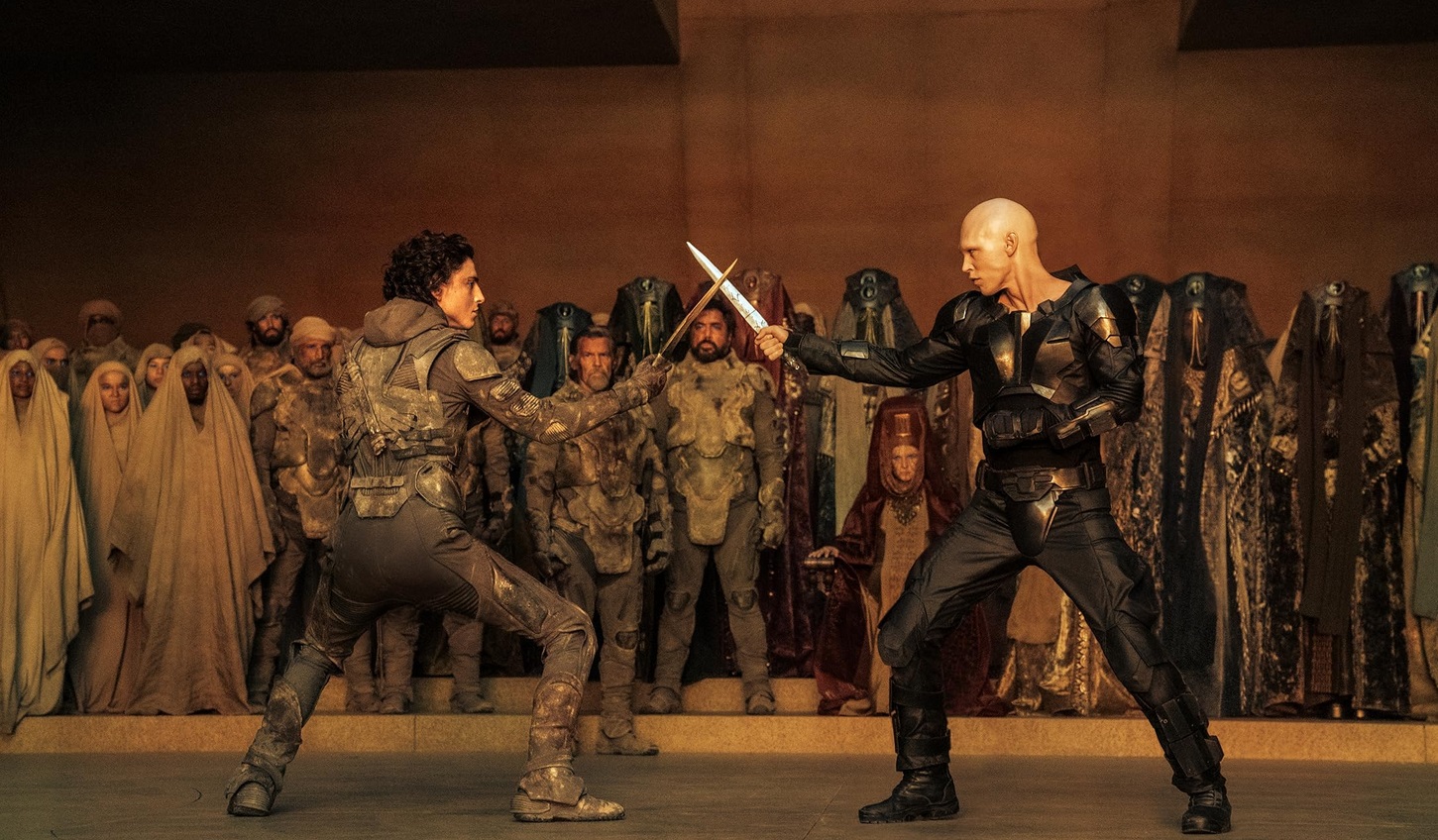
 |
| Photo © 2024 Warner Bros. / Legendary Entertainment |
| Academy Award Nominations and Winners: | |
| Best Picture | |
| Best Cinematography: Greig Fraser | |
| Best Production Design: Patrice Vermette, Shane Vieau | |
| ★ | Best Sound: Gareth John, Ron Bartlett, Richard King, Doug Hemphill |
| ★ | Best Visual Effects: Paul Lambert, Rhys Salcombe, Stephen James, Gerd Nefzer |
| Golden Globe Nominations: | |
| Best Picture (Drama) | |
| Best Original Score: Hans Zimmer | |
| Other Awards: | |
| British Academy Awards (BAFTAs): Best Sound; Best Visual Effects | |
| Permalink | Home | 2024 | ABC |